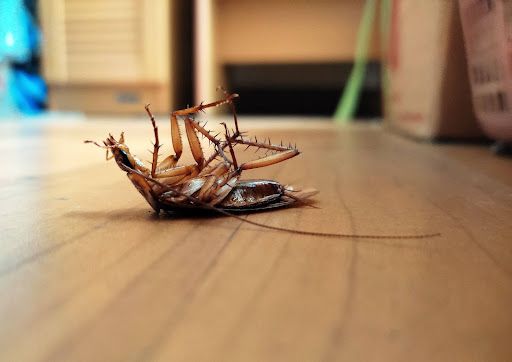The Ultimate Guide to Natural Tick Control for Idaho Pet Owners
Idaho’s breathtaking landscapes offer countless opportunities for you and your pets to enjoy the great outdoors. However, ticks thrive in many of these same natural environments, increasing the risk of tick-borne illnesses for pets. To help you manage the presence of ticks around your home, this guide focuses on natural, pet-friendly control measures—allowing you, your family, and your furry companions to venture outside with greater peace of mind.
Understanding Tick Behavior and Habitats
Ticks are parasites that feed on the blood of animals, including dogs, cats, and even humans. Certain tick species can transmit diseases like Lyme disease, Rocky Mountain spotted fever, and babesiosis. Understanding when and where ticks are active is a crucial first step in effective prevention. According to the Centers for Disease Control and Prevention, ticks typically favor overgrown vegetation, leaf litter, and tall grass. They often hitch rides on pets that wander through these areas, making dense or wooded portions of your property a hotspot for potential infestations.
Because Idaho’s climate varies significantly from region to region—encompassing prairies, forests, and mountain ranges—it’s essential to stay informed about local tick activity. Checking your pets, and even yourself, after spending time outdoors will help you detect ticks before they become problematic.
Pet-Friendly, Natural Repellents
Many natural ingredients repel ticks without introducing harsh chemicals to your home environment. Plant-based substances like cedarwood, lemongrass, and lavender contain active components known to deter ticks. When properly diluted, essential oils derived from these plants can sometimes be used as spray-on solutions for your pet’s bedding or favorite resting spots. Always confirm with your veterinarian before applying any essential oil directly to your pet’s fur or skin, as even naturally derived products can cause adverse reactions if misused.
Similarly, herbal pet shampoos that include ingredients like neem oil are often recommended to help keep ticks at bay. Frequent grooming and bathing also allow you to check your pet’s coat on a regular basis, ensuring you spot and remove any ticks that may have attached. For extended time outdoors, some pet owners opt for flea and tick collars that rely on natural insect-repelling ingredients. However, make sure to consult with your vet about product safety and compatibility with your pet’s lifestyle.
Landscape Choices for Tick Prevention
Natural tick control often begins with your landscape. Maintaining a clean, well-designed outdoor space not only preserves the scenic appeal of your Idaho property but also creates an environment less hospitable to ticks. Regularly mowing lawns, trimming overgrown shrubs, and clearing away leaf litter help minimize the humidity and shade needed for tick survival. Gravel or wood-chip borders around lawns, patios, or woodland edges can also reduce tick migration from denser vegetation into areas frequented by pets.
Additionally, consider planting shrubs and flowers that repel pests. Marigolds, rosemary, and lemongrass, for instance, have been recognized for their capacity to discourage a range of insects including ticks. By choosing drought-resistant, hardy native plants, you can maintain a healthy, eco-friendly yard that supports Idaho’s local ecosystem while also enhancing tick prevention.
Regular Pet Check-Ups and Grooming
A hands-on, thorough check of your pet’s fur is among the most effective methods of spotting ticks. According to the American Veterinary Medical Association, ticks may quickly attach to spots like the ears, neck, and underbelly—areas that pet owners can easily overlook. Making it a habit to gently comb through your pet’s coat not only helps you detect ticks early but also nurtures the bond between you and your furry friend.
If you do find a tick, use a specialized tick-removal tool or fine-tipped tweezers to grasp the tick close to the skin, then pull it out steadily. Avoid twisting or jerking the tick, as this may cause parts of the mouth to remain embedded in your pet’s skin. Clean the bite area and your hands thoroughly afterward. Again, always reach out to a veterinarian if you’re uncertain about proper removal techniques or concerned about potential infections.
Creating an Integrated Approach to Tick Management
Natural tick control is most successful when you combine multiple strategies. This approach, sometimes referred to as integrated pest management (IPM), emphasizes prevention, continuous monitoring, and an array of safer remedies. While IPM does not entirely exclude the selective use of conventional pest treatments, many homeowners can significantly reduce chemical applications by embracing consistent yard maintenance, natural repellents, and frequent pet check-ups.
Some Idaho pet owners find additional peace of mind by enlisting a professional pest control service that shares a commitment to eco-friendly methods. This can help ensure that both preventative measures and targeted treatments remain thorough yet considerate of your household’s health.
Staying Vigilant Year-Round
Tick activity can be unpredictable, sometimes extending into cooler months if conditions remain mild. Maintaining consistent preventative practices throughout the year is especially crucial for homes with beloved outdoor adventurers. Even quick walks in forested areas or spontaneous outings on grassy fields can introduce ticks to your pets. By adopting a long-term perspective, you’ll lessen the likelihood of encountering a sudden infestation and safeguard your home and pets more effectively.
Next Steps and Contact Information
Whether your pet loves chasing squirrels along hiking trails or simply basking in the sun on your lawn, implementing these natural tick control strategies can help keep everyone safe and comfortable. If you have questions or need additional help adapting an eco-friendly pest management plan for your property, consider reaching out to our dedicated team at Natura Pest Control.
You can also visit our
contact page to learn more about our services, schedule an inspection, or consult with our professionals on refining a tick prevention program that suits your home’s unique needs. By taking a proactive, pet-first approach and prioritizing natural solutions, you can continue enjoying Idaho’s great outdoors with peace of mind, knowing your furry companions are protected.



Call or chat with us today!
Nevada
5595 Equity Ave, Ste 650, Reno, NV 89502
1855 Sullivan Ln, Sparks, NV 89431, United States of America
Idaho

